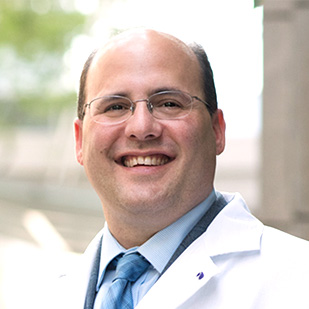The Cuda Lab — led by Carla Cuda, PhD — investigates the neuropsychiatric manifestations of systemic lupus erythematosus (NP-SLE) using basic and translational research. NP-SLE affects up to 90 percent of lupus patients, leading to conditions like seizures, strokes, mood disorders and cognitive dysfunction, yet the underlying mechanisms remain poorly understood.
Recent studies implicate microglia, the brain’s innate immune cells, in NP-SLE. Our lab is the first to identify a shared transcriptional signature between NP-SLE and disease-associated microglia (DAM), a subset previously linked to Alzheimer's. We discovered that the expression of DAM-related genes correlates with behavioral deficits in mouse models, and treatments targeting microglia, like fingolimod, improve these outcomes.
We also explore the role of macrophages in NP-SLE, finding that increased brain macrophages correlate with more severe early-life symptoms. Our research suggests shared mechanisms between NP-SLE and other lupus manifestations, such as lupus nephritis.
The lab is translating these findings to human studies by analyzing cerebrospinal fluid and circulating monocytes from NP-SLE patients to uncover potential diagnostic and therapeutic targets. Through this work, we aim to improve understanding and treatment of NP-SLE.
For more information, Cuda's faculty profile.
Publications
View Cuda's publications at PubMed.
Contact Us
Contact Cuda at 312-503-7320 or c-cuda@northwestern.edu.
Rheumatoid arthritis (RA), though incurable, improves naturally during pregnancy in 50 to 75 percent of women, while worsening or remaining unchanged in others. The reasons for this are not fully understood, nor is the cause of the common RA flare that occurs three to six months after childbirth. Hormonal changes alone cannot explain these patterns, and little is known about the biological shifts in a woman's blood before, during and after pregnancy.
Damini Jawaheer, PhD, and the Jawaheer Lab lead research on this topic through a unique pregnancy cohort of RA and healthy women in Denmark. This cohort, the first to include pre-pregnancy baselines and samples collected throughout pregnancy and postpartum, enables gene expression and epigenetic studies to investigate these phenomena. Initial findings indicate that specific immune pathways are progressively modulated during pregnancy, and pre-pregnancy gene expression may predict RA improvement or worsening. Additionally, a set of immune-related genes is linked to postpartum RA flare.
The lab's ongoing research uses advanced genomics and bioinformatics to build on these discoveries. This work could identify new therapeutic targets to replicate the beneficial effects of pregnancy on RA, offering hope for improved treatments for millions affected by the disease worldwide.
For more information, visit Jawaheer's faculty profile.
Publications
View Jawaheer's publications via PubMed.
Contact Us
Email Jawaheer
Macrophages are key drivers of inflammation and fibrosis in organs like the synovium, kidney, and lung during rheumatoid arthritis, systemic lupus erythematosus and systemic sclerosis. They also contribute to related conditions such as atherosclerosis and obesity. Our research reveals significant heterogeneity in macrophage populations, influenced by their origin and environment, and shows they can alter their phenotype over the course of disease.
Harris R. Perlman, PhD, and the Perlman Lab propose that in early disease stages, tissue-resident macrophages, which usually maintain immune tolerance, are overwhelmed by pro-inflammatory or pro-fibrotic monocyte-derived macrophages. As disease progresses, recruited macrophages take on tissue-resident traits but retain harmful, chronic inflammation-promoting characteristics, driving tissue damage and fibrosis.
Using advanced models and technologies like micro-MRI, RNA sequencing, and flow cytometry, we study macrophage behavior and link it to disease progression. Cross-referencing our findings with patient data from AMP programs allows us to rapidly test new therapeutic strategies. This research could lead to paradigm-shifting insights and treatments for rheumatic diseases.
For more information, see Perlman's faculty profile.
Publications
View Perlman's publications via PubMed.
Contact Us
Contact Perlman at 312-503-8003 or the Perlman Lab at 312-503-1933.
The goal of the Winter Lab of Functional Genomics is to apply genomic approaches to study rheumatic disease. Led by Deborah Winter, PhD, a computational immunologist, we employ the latest technologies for assays, such as RNA-seq, ChIP-seq, ATAC-seq and single cell expression, to profile the transcriptional and epigenomic profiles of immune cells in health and disease.
Our goal is to define the underlying regulatory networks and understanding how they respond to challenge, illness and injury. We are particularly interested in the role of macrophages in diseases such as scleroderma, rheumatoid arthritis and lupus. Previous research has addressed the impact of the tissue environment on resident macrophages and the role of microglia, CNS-resident macrophages, in brain development. Our research combines molecular and systems biology, biotechnology, clinical applications and computer science.
We use both mouse models and patient samples to help us understand and test different systems. We are committed to high standards of analysis and are continually updating and training in innovative computational techniques. We are currently recruiting highly motivated individuals to join the lab.
For more information, see Winter's faculty profile.
Publications
View Winter's publications via PubMed.
Contact Us
Contact Deborah Winter at deborah.winter@northwestern.edu or 312-503-0535.
